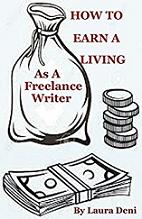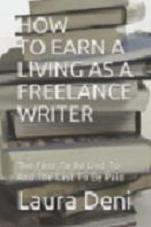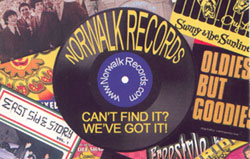 Broadway To Vegas
Broadway To Vegas

REVIEWS INTERVIEWS COMMENTARY NEWS
 |  |
PULITZER PRIZE WINNER SWEAT EFFECTIVELY TRANSFERS TO STREAMING - - REVISITING AMERICA: THE PRINTS OF CURRIER & IVES
- - REVISITING AMERICA: THE PRINTS OF CURRIER & IVES - - HARVARD ART MUSEUMS FROM HOME - -
STEP INSIDE MEGALODON'S JAW - - THE RECORDING ACADEMY, BERKLEE COLLEGE OF MUSIC AND ARIZONA STATE UNIVERSITY HAVE PARTNERED - -
ALAN KING RETURNS TO VEGAS
- - ATLANTA COUNCIL'S ADRIENNE ARSHT-ROCHEFELLER FOUNDATION RESILIENCE CENTER - - DONATE . . . Scroll Down
Copyright: March 7, 2021
By: Laura Deni
CLICK HERE FOR COMMENT SECTION
PULITZER PRIZE WINNER SWEAT EFFECTIVELY TRANSFERS TO STREAMING
Sweat is a 2015 play by American playwright Lynn Nottage. It won the 2017 Pulitzer Prize for Drama. The play premiered at the Oregon Shakespeare Festival in 2015; it was produced Off-Broadway in 2016 and on Broadway in 2017. The play is centered on the working class of Reading, Pennsylvania.
Having seen the play on Broadway, it was nice to revisit this via streaming.
Featuring: Miguel Alejandro Fana as Evan the parole officer - Lori Kee as Tracey - Logan Keeler as Jason -
Juanes Montoya as Oscar the busboy - David Nikolas as Stan the bartender -
Justin Phillips and Chris - Philipe D. Preston as Brucie -
Joy Sudduth as Cynthia - and Eileen Weisinger as Jessie.
The camera work, direction, lighting and sound are superior. The acting is top notch. Nothing is lost in this transfer from stage to stream.
This new production presented by The Seeing Place on Zoom is directed by Brandon Walker, who also serves as sound designer.
As part of the Ripple for Change Series, the streaming benefited The Fortune Society. Founded in 1967, The Fortune Society’s mission is to support successful reentry from incarceration and promote alternatives to incarceration. Their vision is to foster a world where all who are incarcerated or formerly incarcerated will thrive as positive, contributing members of society.
The official definition of Sweat
"It’s the year 2000 in Reading, Pennsylvania and a group of friends go to work at the steel mill and then decompress at the bar like they’ve been doing for over 20 years. But, unbeknownst to them, their lives are about to be uprooted. Their steel mill, Olstead’s, is making some changes and the blood, sweat and tears, not to mention the generations of loyalty these workers have shown, don’t seem to amount to much. These middle class, unionized, steelworkers have made plans to save money, go on vacations and then retire with a nice, healthy pension, but when rumors start flying that the company is considering layoffs, and flyers are hung to recruit non-union Latino workers for less money, the war between community and capitalism begins, and tensions start destroying not only jobs, but also relationships. This poignant play takes a look at the de-industrial revolution through the lens of a history play, but also delves into the issues of today: the economy, immigration, race-relations in America, and politics. Lynn Nottage’s Sweat gives us characters filled with the good and the bad and asks us to reflect on our own views and the views of others. Nottage never tells us who’s right or who’s wrong, but always shows us who’s human."
The play is a series of conversations built around off hours of factory workers. There cannot be- nor is there - an end.
The play opens in 2008 and shifts in time to events of eight years earlier.
Sweat is tough. The talk is raw with the characters seemingly unable to say a sentence without using vulgar words. It's simply the way they normally express themselves. The play opens in 2008 with Parole Officer Evan engaged in two separate conversations - each with an ex-prisoner - Jason and Chris - after they have been released from their eight-year-prison sentence. They were co-workers and ended up behind bars for an act they committed together.
Jason boasts a black eye and Ayran Brotherhood tattoos on his face. He's staying at a homeless shelter where, in exchange for doing chores, he sleeps in the rec room. The chip on his shoulder impedes his ability to speak in sentences while Chris, the more articulate and neatly dressed, accepted into a teaching program, intended to finish his education behind bars, but is 8 hours short of his degree.
Chris is mad at himself, taking some comfort in religious services where he's placated with phases such as - "lean on God and He will lead you through the terrible storm."
Neither can find a job; or can acquire only menial wage, dead end types - the six to eight dollar an hour jobs.
As parole officer Evan says - "You've got to begin somewhere."
An announcer introduces each scene where a historical fact is presented.
The scene shifts to 2000, eight years earlier -The Span Between The Wealthy And Poor Is Spreading.
In a bar co-workers hang out after work. Cynthia and Tracy are drunk Designated driver Jessie is passed out on the table. Stan the bartender takes Jessie's keys and thrown them into a jar filled such objects. The patrons aren't up and comers or yuppies, but those fighting to hang on to mediocrity. They drink too much and whine.
These are not scenes with a beginning, a middle and end - rather a chronicler of daily life conversations which show the fears of blue collar Americans.
February 2000 - Bar Scene Scene 3 - Chris and James are there in their younger selves. Chris has been accepted into a teaching certificate program. He's working two shifts trying to put money away for his schooling. He can't get ahead because all of his salary is "caught up in benefits."
James chides him, stressing that people in the factory earn more money than teachers.
March 2, 2000 Scene 4 - Brucie sits at the bar nursing a drink. Cynthia, Tracy and Jessie enter and after a long day at work and "need a drink."
They snipe at each other.
The Olmed factory workers are friends, co-workers and occasional lovers. They can be friends and civil associates as long as their life-style isn't threatened. The opportunity for one to receive a promotion makes waves. Workers offered to take a 50% pay cut. Managements wants them to give up retirement benefits. Stan left the factory after being injured on the job. He couldn't walk and had an extended hospital stay the only time he heard from factory Olmed was when they sent their lawyer to the hospital wanting him to sign papers that he wouldn't sue.
April 17, 2000 Scene 5 - The Dow Jones Has Dropped.
Tracie is smoking a cigarette outside the bar and Oscar steps outside and unsuccessfully tries to bum a cigarette; then Tracie relents and gives him one.
Tracie's father worked at the factory. Tracie now works there and so does her son.
They're been on the floor for over twenty years. For most, it's their first and only job and nobody "moves off the floor" to a management position.
They stand for 10-hour shifts and their hands are sore from repetitive movements.
The bartender's grandfather worked there. Those were the days when a person's job lasted until retirement and children followed their footsteps.
Then Cynthia gets promoted off the floor and friend Tracie wishes Cynthia would shut up talking about her promotion. She voices that her qualifications are equal, or superior, to Cynthia's. Tracie speculates that they needed to hire a minority to fill a government regulation.
Cynthia is the only one in her family who ever made it off the floor She wonders if she was given the promotion just because she is Black, so that a target could be put on her back.
May 5, 2000 Scene 6 At the bar Stan prepares a gimlet and there is a birthday cake for Jessie who begins gossiping about her friends and co-workers. Tracie doesn't like taking orders from Cynthia. With her friends over an hour late, Jessie decides to blow out the candles, wishing for a birthday kiss.
Cynthia arrives and talks about her promotion, new office and what it contains, including air conditioning. She comments about being able to loosen her support belt, and not having to worry about her fingers cramping.
Tracie enters and tells the others to get over it that she is late.
Cynthia is criticized and blamed. Are they going to be laying people off? If so, blame Cynthia.
July 4, 2000 - Scene 7 Salary Gap Is Narrowing In Certain Industries. Brucie smokes a cigarette outside the bar. His mother is inside and doesn't want to talk to anyone. Tensions are tight.
Stan warns the others that work on the line will be reduced and "You could wake up tomorrow and all your jobs are in Mexico", to which others respond with ridicule.
Something is going on at the plant. Machines at the plant are gone.
There is a lockout.
Cynthia's former friends and workers blame her for the lockout The bartender says they don't even want him to serve her a drink.
Tracie and Jessie enter and call her a traitor.
The union gives then food vouchers They worry about unemployment running out.
Scene 8 - Tracie's bleak apartment. with excellent scenic design which effectively shows the living area without being blurred or distorted by a small screen.
Having lost her home to foreclosure, Cynthia is in her small apartment, dressed in a home health care workers uniform. She's eating from take out containers.
Rich arrives needing money and is upset that Tracie is "strung out". Tracie gives him $5.00 but wants to back by tomorrow.
Chris arrives with his Bible which he claims saved his life.
Act 2, Scene 5 October 5, 2000 - The Sony Play Station 2 Has People Camped Outside All Night To Buy It For $350.
Oscar, who works as a busboy at the bar, is willing to cross the picket line for $11 an hour. He's warned that everyone will turn against him. Tracy and Jessie react by hurling racist slurs and comments about Mexican immigrants at Oscar, despite the fact that he's Colombian and was born in Berks County as they were.
When Oscar attempts to leave the bar, a vicious fight ensues. Jason and Chris eventually flee, are caught, and are sentenced to prison.
The streaming of this pivotal fight scene is important. Difficult to film for streaming, the action is flawlessly described by the announcer whose voice reflects the anxiety and force - much as decades ago, championship fights were given (no pun intended) blow by blow accounts on the radio.
September 28, returns to 2008, with parole officer Evan speaking to Chris. then Jason. The parole officer says he's received a call that Jason was fighting at the shelter. He's moved out and is camping in the woods.
The scene shifts to The Bar where Brucie is at a table.
In the final scene Jason and Chris end up at the bar. Oscar, older and more mature, is a temporary laborer at the plant and works weekends as the bar manager. He's immediately cautious about Jason and Chris returning to the scene of the fight. Stan enters the bar.
Each have their own tale of woe. They lament and need somebody to blame. Chris was counting on double shifts to pay his school bills and has drooped out. Jason says that he's been "out of control" ever since his mother died.
Stan, now severely crippled with a traumatic brain injury, moves with extreme difficulty. He struggles to wipe the tables, drops a cloth and has trouble picking it up.
The play blacks out.
Their job foundation has crumbled and they don't have options, a support system or building skills to restructure their lives. They have drown in their own sweat.
Stage Management Shannon Formas
Scenic and Costume Design Erin Cronican
Sound Design Brandon Walker
Associate Producer - Outreach William Ketter
Groups - Outreach Barbara Haas, Erin Cronican
Marketing Design - Graphics Laura Clare Browne, Erin Cronican
Marketing Design - Video Hailey Vest
Social Media - Outreach Weronika Helena Wozniak, Erin Cronican,
Marketing Support Robin Friend
Dramaturgy / Program Jon L Peacock
E-Book
 |
Soft back Book
 |
Broadway To Vegas is supported through advertising and donations. Priority consideration is given to interview suggestions, news,
press releases, etc from paid supporters. However, no paid supporters control, alter,
edit, or in any way manipulate
the content of this site. Your donation is appreciated.
We accept PAYPAL.
Thank you for your interest.
E-Book
 |
Soft back Book
 |
This is not your typical, totally boring textbook.
In the pages of How To Earn A Living As A Freelance Writer (the first to be lied to and the last to be paid)
you'll find sex, celebrities, violence, threats, unethical editors, scummy managers and lawyers,
treacherous press agents, sex discrimination; as well as a how-to for earning money by writing down words.
ART AND ABOUT
HARVARD ART MUSEUMS FROM HOME
What does it mean to redefine the landscape that art occupies? Join curator Mary Schneider Enriquez and Chassidy Winestock, on Wednesday, March 10, for a conversation reflecting on works by Howardena Pindell, Kara Walker, and Kerry James Marshall. They will look at how these artists have challenged the art world and museum spaces. This online event is free and open to everyone.
On Thursday, March 11, you’re invited to take a closer look at a seventh-century mural painting, a sculpture by Brancusi, and an easel painting by Kandinsky. On March 13, we’ll confront the history of museum practice through a critical look at Eight Men Ferrying a Statue of the Buddha, a Liberian (Mano) “chief’s mask,” and a work by Louise Bourgeois.
STEP INSIDE MEGALODON'S JAW The 50-foot-long megalodon has cast its shadow over Stanley Field Hall in Chicago. This powerful fish—the largest shark discovered to date—had massive jaws that held about 250 teeth in five rows that were lost and replaced from the row behind throughout the shark's life.
Visit the Field Museum to step inside the jaws of this apex predator. Plus, see the largest megalodon tooth ever found (6.5 inches!) on display in Evolving Planet.
In the Griffin Halls of Evolving Planet, get to know the many creatures that have roamed the earth throughout history, from single-celled organisms to our extended human family. Experience a variety of fossils, animated videos, and interactive displays that tell the story of evolution, the process that connects all living things on Earth.
Don’t miss the Elizabeth Morse Genius Hall of Dinosaurs to get up close and personal with more than a dozen of the biggest creatures in our history. Then, experience the world of SUE the T. rex, our famous fossil with a big personality.
Exhibit highlights include:
The fossil skeleton of SUE, a 40-foot-long and 90-percent-complete Tyrannosaurus rex
Megatherium, a giant ground sloth
The Tully Monster, discovered in Illinois and our state fossil!
A model of Lucy, a 3.2-million-year-old hominid
REVISITING AMERICA: THE PRINTS OF CURRIER & IVES
sheds new light on the famous firm’s artistic and commercial practices, revealing the complex social relationships and surprising modernity of its lavish prints, which found their way into the homes of tens of thousands of Americans in the nineteenth century.
The nearly 600 Currier & Ives lithographs were donated in 2016 to the Joslyn Art Museum by ConAgrs Foods, Inc - now Conagra Brands.
Through April 11, 2021 at the Joslyn Museum in Omaha, Nebraska.
E-Book
 |
Soft back Book
 |
SPREADING THE WORD
PASADENA PLAYHOUSE Producing Artistic Director Danny Feldman has announced the live streaming of Another Day’s Begun: Exploring Our Town on PlayhouseLive, March 11, 2021 at 6:30pm PT, presented by Pasadena Playhouse and Vroman’s Bookstore. Another Day’s Begun: Exploring Our Town will be available on demand beginning March 12.
This special event celebrates Our Town, the quintessential American play, with performances from previous cast members and a conversation with Jane Kaczmarek, who played the Stage Manager in the 2017 Pasadena Playhouse/Deaf West production, and author Howard Sherman, author of the new book Another Day’s Begun: Thornton Wilder’s Our Town in the 21st Century.
Kaczmarek and Sherman guide us through the enduring legacy of Thornton Wilder’s masterpiece with excerpts from Our Town performed by Kaczmarek herself, Youssef Kerkour, Keith Randolph Smith and Alexandria Wailes.
The evening is also a virtual celebration of Sherman’s new book, which explores thirteen key productions of Our Town, including the landmark 2017 production by Pasadena Playhouse and Deaf West Productions.
WOOLLY MAMMOTH THEATRE COMPANY REIMAGINES ARTISTIC PROGRAMMING WITH RESET a free, interactive digital collection curated By Nicole M. Brewer, Faedra Chatard Carpenter, Jordan Ealey, Kristen Jackson, Leticia Ridley, and Nikkole Salter.
Seventeen artists brought their works to life, including Woolly Company Members Shannon Dorsey and Dawn Ursula, as well as long-time and new Woolly collaborators: E. Faye Butler, Felicia Curry, Saidah Arrika Ekulona, Ricardy Fabre, Paige Hernandez, Ahmaya Knoelle Higginson, Asia Howard, Kristolyn Lloyd, Amiah McGinty, Natasha Ofili, Sisi Reid, Patience Sings, Myra Lucretia Taylor, Tyler Thomas, and Reggie D. White.
Among the women they pay tribute to are poet Nikki Giovanni, producer and playwright Vy Higginsen, actress Hattie McDaniel, Black feminist group The Combahee River Collective, and Dr. Barbara Ann Teer, founder of the National Black Theatre. And just as the solar system is vast, so are the works of these selected women and the multitudes of many more women who could be included in the collection. The hope is this is the beginning of a journey that continues on into deeper discovery.
The collection featuring historical resources, excerpts, and video performances is available now at www.woollyreset.net from March 4 - 31, 2021.
EASY LYNNE THEATER COMPANY of Cape May, New Jersey, presents a reading of Something to Vote For by Charlotte Perkins Gilman for free, due to support from The New Jersey Council for the Humanities through its "NJ Women Vote: The 19th Amendment at 100" initiative, and The New Jersey Theatre Alliance's Stages Festival.
Gilman (1860 – 1935) known for her novel The Yellow Wallpaper, published this forty-minute one-act in her monthly magazine, The Forerunner, in 1911. Such plays were important for the suffrage movement because they could be read aloud and/or staged in private homes, bringing this controversial topic into living rooms. Many of the British suffrage plays survived - most of the American ones did not. This both witty and profound play takes place in the home of the president of an influential anti-suffrage women's club. When the group is concerned about the purity of milk, a local milk manufacturer, the new milk inspector, a woman who has recently lost a child, and a woman doctor are invited to speak to the club. The doctor puts the need for women to vote at the center of the conversation if these women really want change for the better.
Something to Vote For premieres on Thursday, March 18 at 8:00 PM on ELTC's YouTube Channel https://www.tinyurl.com/ELTCYouTube and is available anytime through Sunday, March 21. It can be viewed directly on a flat screen TV, but if viewing it on a computer, ELTC recommends connecting the computer to the TV with an HDMI cable so the play is seen on a larger screen with better sound. Closed Caption is available on YouTube.
The talented cast is currently located in South Jersey, Manhattan, Pennsylvania, and North Carolina. They are: Pat Dwyer, Rachel Holt, Jared Mason Murray, Marcia Sofley, and Susan Tischler, Amanda Brinlee, Ann Flanigan and Sandra Nicke. The director is Gayle Stahlhuth, artistic director of ELTC since 1999.
NEW YORK ENTERTAINMENT OPENS UP Starting April 2, 2021 event, arts and entertainment venues can reopen at 33 percent capacity, up to 100 people indoors and up to 200 people outdoors. If all attendees present proof of negative test prior to entry, capacity can increase up to 150 people indoors and up to 500 people outdoors. Social distancing and face coverings will be required by all attendees, as well as strict adherence to all applicable NYS Department of Health guidance.
ATLANTA COUNCIL'S ADRIENNE ARSHT-ROCHEFELLER FOUNDATION RESILIENCE CENTER (Arsht-Rock) March 4 on You Tube launched Stories of Human Resilience – a groundbreaking video project with Emmy and Pulitzer Prize nominated playwright, actress, author, journalist, and educator Anna Deavere Smith.
In 2019, Smith was named the Council’s first-ever Artist-in-Residence.
Stories of Human Resilience is a six-part series that showcases her signature form of theater, based on interviews with individuals who have faced a range of challenges and disruptions in their lives, and will premiere with a story about the escalating challenges facing frontline healthcare workers in NYC in the early days of the COVID-19 pandemic. In April, Smith will present a story about the extraordinary life of Tony Award winning actress LaChanze. And in May, Smith will focus on the migration crisis through stories of migrants in Latin America.
As an Impact Philanthropist and the first woman recipient of the Carnegie Hall Medal of Excellence, Adrienne Arsht has a long history of supporting the arts and bridging the arts to resilience in New York, Washington D.C. and Miami – from her transformative $30M gift to the Adrienne Arsht Center for the Performing Arts of Miami-Dade County which created a renaissance of downtown Miami becoming the thriving arts district that it is today to her $10M contribution to upgrade the stage at Lincoln Center’s Vivian Beaumont Theater. And, her most recent $5M gift to The Metropolitan Museum of Art in 2020 to fully fund the internship program, making The Met the single largest art museum in the U.S. to offer paid internship positions, and ultimately leveling the playing field and helping to break down racial barriers in the arts.
The mission of the Adrienne Arsht-Rockefeller Foundation Resilience Center is to reach One Billion People around the world with resilient solutions to climate, migration, and human security by 2030.
THE RECORDING ACADEMY, BERKLEE COLLEGE OF MUSIC AND ARIZONA STATE UNIVERSITY have partnered
to conduct a study focused on women's representation spanning all sectors of the music industry. The study's primary goals are to further establish a baseline analysis on women's representation working in the American music industry, learn more about the available talent pool of women in music, and set priorities around music creators and aspects of mentorship. The data collected from the study will be utilized to develop and empower the next generation of women music creators by generating actionable items and solutions to help inform the Academy's diversity, equity and inclusion objectives amongst its membership and the greater music industry. With this partnership, the Academy, Berklee and ASU are committed to increasing the dialogue in this space and bringing further examination and exposure to this topic.
This new effort will build upon the baseline constructed by Berklee's 2019 study, "Women in the U.S. Music Industry: Obstacles And Opportunities," authored by Erin Barra, Director of Popular Music at Arizona State University and Executive Director of Beats By Girlz; Sharon Kramer, Dean of Institutional Research and Assessment at Berklee College of Music; and Becky Prior, Associate Director of Institutional Research at Berklee College of Music. Barra will lead the new study, which is expected to be completed and released in early 2022.
"Women are key drivers in the economy and across all business and creative sectors in music, globally, yet we reflect 2 percent of producers and engineers," said Valeisha Butterfield Jones, Chief Diversity, Equity & Inclusion Officer at the Recording Academy.
"As the world's leading institution for the study of music, Berklee is continually finding ways to foster and encourage diversity in the music community," said Susan Whitehead, Chair of Berklee College of Music's Board of Trustees. "The music industry is in need of a broad gender study that examines women representation beyond today's popular music in order to help accurately identify key areas for growth and improvement."
OTHER PEOPLE'S
MONEY
OREGON SHAKESPEARE FESTIVAL< ARTIZEN, BLACK REALITIES AND TRIBECA FILM FESTIVAL have partnered to award $10,000 Black Realities Creative Grant and World Premiere at the 2021 Tribeca Film Festival to Black Artists Working in Film, Immersive Technologies, and Other Media Disciplines.
Submissions are open. Deadline to submit is March 20, 2021.
The winning project will also have the opportunity to premiere on OSF’s digital platform O!. All formats, genres, and categories of screen-based projects will be considered including films, episodic programs, games, apps, VR/AR/XR immersive experiences, photojournalism, and more.
There are only three hard requirements for grantee eligibility: the lead creator(s) must be Black, the perspective of Black folx and the centering of Black thoughts and characters must be the core of the project, and finally, the project must be completed by May 15 to be exhibited at the 2021 Tribeca Film Festival, June 9–20. Submissions are encouraged that highlight the vast and multilayered range of subjects, perspectives, and content within Black realities, which also includes and welcomes the exploration of the current and ongoing anti-Black political and social climate.
E-Book
 |
Soft back Book
 |
E-Book
 |
Soft back Book
 |
This is not your typical, totally boring textbook.
In the pages of How To Earn A Living As A Freelance Writer (the first to be lied to and the last to be paid)
you'll find sex, celebrities, violence, threats, unethical editors, scummy managers and lawyers,
treacherous press agents, sex discrimination; as well as a how-to for earning money by writing down words.
FINAL OVATION
JORGE OFIATE Colombian singer died February 28, 2021 in Medellin, Colombia. He was 71.
As of 2004 and since the beginning of his career in 1968 he had achieved 25 gold discs, 7 platinum discs and 6 double platinum for his sales.
He married Nancy Zuleta and had three children with her; Jorge Luis, Delfina Ines and Jorge Daniel. He also had another son (also named Jorge) from an extramarital relationship with a woman named Claudia Dangond.
Gabriel Abaroa, Jr.
President/CEO of The Latin Recording Academy issued the following statement: "
Jorge Oñate, "The Mockingbird of the Americas," was one of the most important composers and interpreters of vallenato — a successful, popular and authentic genre of Colombian music.
"Oñate marked a before and after in the genre. He became the first vallenato artist to focus exclusively on vocal performance: before him, musicians sang while playing the accordion at the same time.
"Throughout his extensive career, Oñate earned great fame and commercial success. He was a mentor and friend to many of the genre’s performers, as well as an active member of the vallenato community and an advocate for the rights of composers in Colombia.
"He received the 2010 Lifetime Achievement Award from The Latin Recording Academy, and several of his works received Latin Grammy nominations.
"His performances leave a cultural legacy for the genre that will continue to inspire the next generation of music makers. We deeply regret his passing. We extend our respect and deepest condolences to his family, his fans and all of Colombia."
LAWRENCE ALEXANDER television writer died February 20, 2021 in Los Angeles. He was 81.
He was a WGA writer known for many popular 70s and 80s TV shows such as Charlie's Angels, CHiPs, Fantasy Island, Ironside, Marcus Welby, M.D., Streets of San Francisco, Barnaby Jones plus many more. He also wrote several novels as well as stage plays including Fumy Valentine with Steven Kandel and Joint Custody, author of the play Incidential Music, 1983. Author of the lyrics for the musical Dandelion Wine.
Divorced, he is survived by his children Jacqueline Samantha and Daniel Randy.
Next Column: March 14, 2021
Copyright: March 7, 2021 All Rights Reserved. Reviews, Interviews, Commentary,
Photographs or Graphics from any Broadway To Vegas (TM) columns may not be published,
broadcast, rewritten,
utilized as leads, or used in any manner without permission,
compensation
and/or credit.
Link to Main Page
Laura Deni

For the snail mail address, please E-mail your request.




 Broadway To Vegas
Broadway To Vegas









































